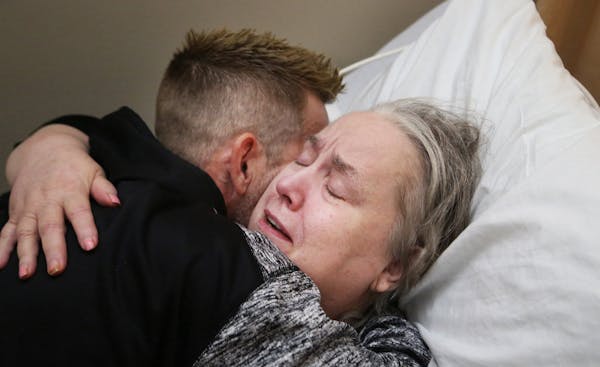Thousands of Minnesotans are abused, neglected and mistreated in care facilities all across our state. Some even lose their lives while in others' care. This disregard for our most vulnerable citizens is a humanitarian crisis. It is a clear violation of human rights.
As a series of Star Tribune reports has shown, the Minnesota Department of Health has a backlog of more than 25,000 abuse complaints that have not been investigated. Historically, 97 percent of complaints are never investigated. Reports of abuse and neglect have doubled in recent years. This is not a breaking news story — it is the sad, tragic saga of a growing lack of care, respect and prioritization for the elderly.
If it were reported that 25,000 uninvestigated reports of abuse occurred in our schools, the Legislature would demand a special session. The governor would probably call out the National Guard. But since it's the elderly, who have most of their years behind them rather than in front of them, the response is little to nothing.
The governor, in the last of eight years in office, issued an apology this week and said he would like to set up a task force to look into the issue. His response is pathetic.
A task force of nursing home executives may produce some recommendations for down the road. That could be helpful. But today thousands of Minnesotans are in danger — the crisis is real — and now. Rapists rape, abusers hurt, thieves steal and murderers kill. It's happening right now!
The first role of government is to protect its citizens. Our state government is not doing that.
The number of those hurt and killed continues to rise with no end in sight. The demographic trends tell us that the number of people needing nursing home care will grow rapidly in the future. With no changes, the complaints of abuse will grow as well.
Investigating the entire backlog of complaints needs to be dealt with now. The abuse and neglect can't stop if it's not investigated. It is impossible to see the road ahead if we don't first address the past and current abuse and neglect.
A crisis of this magnitude needs to be confronted in crisis mode.
Once we're past this crisis, a new approach toward elder care needs to be adopted, one in which those in care facilities are protected and cared for as cherished members of our communities. Their lives — like the lives of each and every one of us — truly matter. They must command our respect and protection.
Scott Fischbach is executive director of Minnesota Citizens Concerned for Life.
The courage to follow the evidence on transgender care

Republicans wanted a crackdown on Israel's critics. Columbia obliged.


